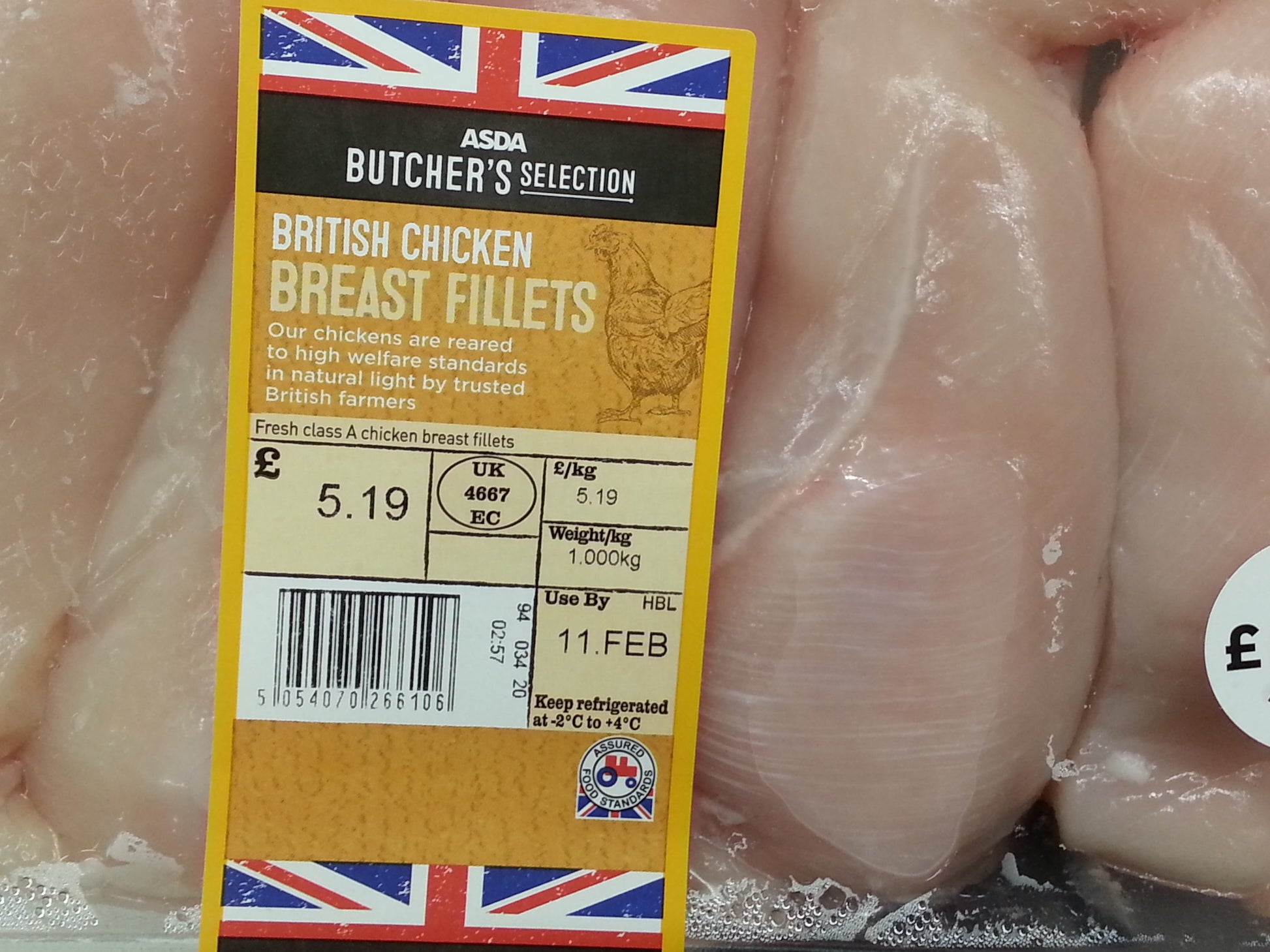Supermarket chickens dubbed ‘Frankenchickens’ as investigators say most suffered muscle disease before death
Own-brand bird meat in Asda, Aldi and Lidl had highest proportion of high-fat white stripes

Supermarket chickens have been dubbed “Frankenchickens” after more than eight in 10 were said to be suffering from a muscle disease that makes the meat higher in fat and less healthy.
Investigators claim white-striping disease was seen on own-brand chicken at most UK supermarkets, but suggest those in Asda, Aldi and Lidl had the highest proportion.
The muscle disease is caused by exceptionally fast growth rates in standard factory-farmed chickens, which are bred to put on weight rapidly.
It appears as thin white lines of fat running across the breast, and reduces the nutritional value of the meat by increasing the fat content, say experts.
The disease appeared to be present in 94 per cent of Asda samples, and in 92 per cent of Aldi and Lidl samples, the investigators reported.
The Humane League UK animal-welfare organisation, which carried out the investigation, said only 11 per cent of samples of higher welfare chicken it looked at — including free-range and organic — showed white striping.
The charity said in a report: “The difference between standard intensive and higher welfare brands clearly indicates that the genetic selection of chickens has gone too far and created a chicken that could rightly be called, given their changed morphology, a ‘Frankenchicken’.
“These findings should be a wake-up call to the chicken industry.”
Vicky Bond, managing director of the charity and a vet, said people often choose chicken because it is considered leaner and healthier. “But with today’s factory-farmed chicken, it’s not as healthy as it once was. Add to that the severe animal welfare issues, and chicken is no longer looking like such an attractive choice.”
The Humane League UK has been lobbying supermarkets to eradicate fast-growing breeds of chicken from their supply chains by adopting the Better Chicken Commitment, which bans extreme breeding.
Marks & Spencer was the first UK retailer to sign up, followed by Waitrose.
But the league says Tesco, Aldi, Lidl, Asda and Morrisons have not agreed to the commitment.
Elizabeth-Andoh Kesson, of the British Retail Consortium, said on behalf of the supermarkets: “Retailers expect their suppliers to adhere to all legal requirements and, if applicable, additional industry standards such as the Red Tractor assurance scheme.
“They take their responsibilities to animal welfare very seriously and customers have a choice of free-range and organic chicken in addition to the standard range.”
The Independent also asked Asda, Aldi and Lidl separately to comment. Lidl referred to the BRC comments; Asda and Aldi did not respond.
Lidl referred to the BRC’s statement.
Join our commenting forum
Join thought-provoking conversations, follow other Independent readers and see their replies
Comments
Bookmark popover
Removed from bookmarks